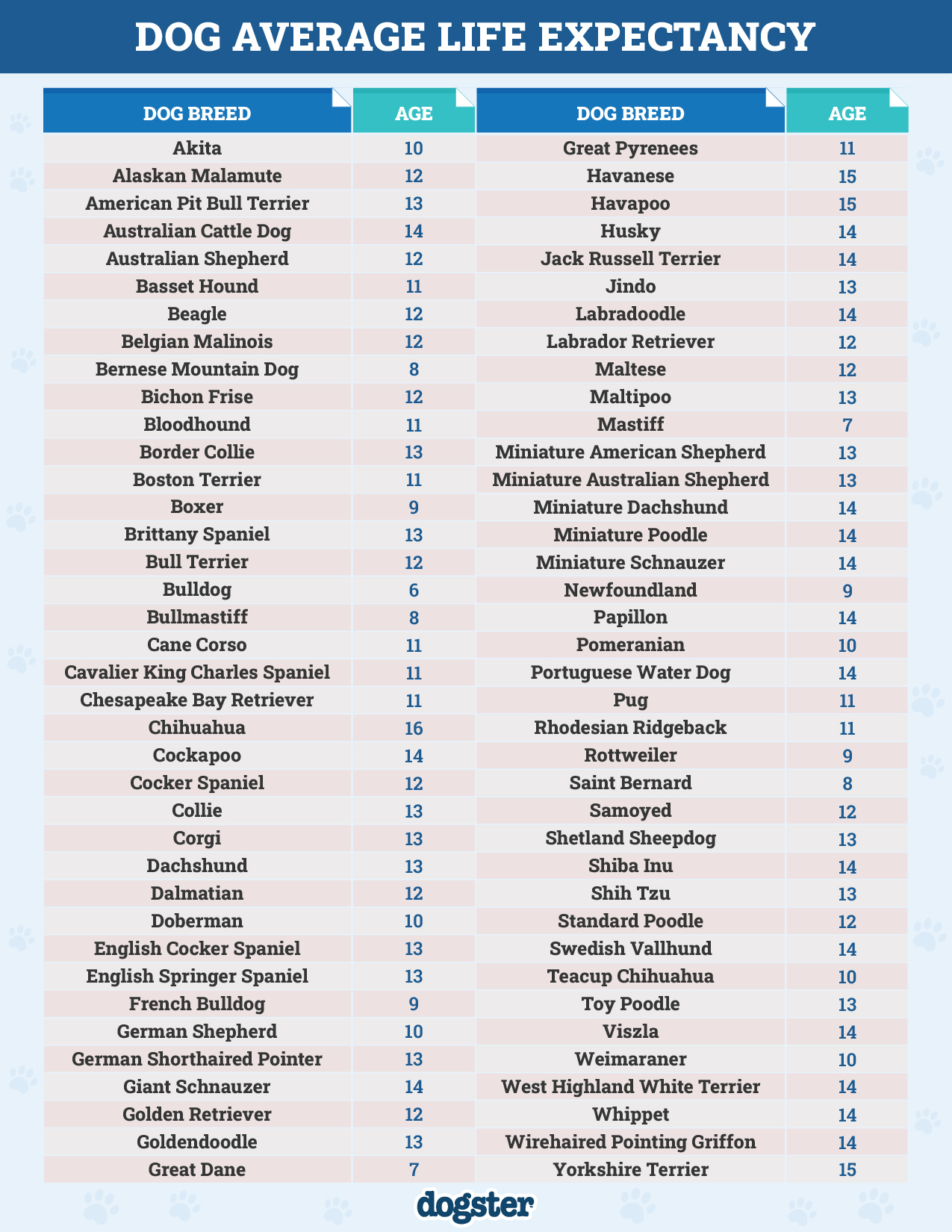In this article
View 4 More +The Shetland Sheepdog, also known as a Sheltie, is a popular and intelligent dog breed known for their herding abilities and friendly nature. So, what is a Sheltie’s lifespan? You can expect a Shetland Sheepdog to live up to 12–14 years on average. This guide will provide you with information on the average lifespan of a Sheltie, how to care for them, and what factors can influence their life expectancy.

Average Sheltie Lifespan
The average Shetland Sheepdog’s lifespan ranges from 12 to 14 years. However, several factors can influence their life expectancy, including genetics, diet, and overall health. With proper vet care, attention, and a bit of luck, some Shelties have been known to live 16 years or more.

Factors That Affect a Sheltie’s Lifespan
1. Genetics
Just like humans, dogs can inherit genes that predispose them to certain health conditions. Responsible breeding practices are crucial in minimizing the risk of genetic health issues that could shorten a Sheltie’s lifespan. When selecting a Sheltie puppy, choose a reputable breeder who conducts health screenings on their breeding dogs.
2. Exercise & Mental Stimulation
Ensuring that your Sheltie receives adequate exercise and mental stimulation is vital for their physical and emotional well-being. Regular physical activity helps them maintain a healthy weight, supports joint health, and contributes to cardiovascular fitness. Mental stimulation keeps their minds sharp and prevents boredom-related behavioral issues.

3. Overall Health
Regular veterinary check-ups and preventative healthcare measures, such as vaccinations, parasite control, and health checks, play a significant role in maintaining your Sheltie’s well-being. Early detection and treatment of any health issues can help prevent complications and extend their life expectancy. If you’re concerned about your dog’s health we suggest you speak to a vet.
If you need to speak with a vet but can't get to one, head over to PangoVet. It's our online service where you can talk to a vet online and get the advice you need for your dog — all at an affordable price!

How to Care for Your Sheltie for a Long Lifespan
To ensure your Sheltie lives a long and healthy life, it’s important to provide proper care that addresses all aspects of their well-being. Here are some key factors to consider.
1. Feeding & Diet
Provide your Sheltie with a high-quality, complete, and balanced diet specifically formulated for their size, age, and activity level. This will ensure they receive the appropriate nutrients for optimal health. Avoid overfeeding them and giving them table scraps, as obesity can lead to various health issues that may shorten their lifespan.
2. Environment
Create a safe and clean living environment for your Sheltie. They should have access to a secure, fenced yard or designated exercise area where they can run and play. Regular exercise is crucial for maintaining their physical health and preventing weight gain. Minimizing exposure to environmental hazards, such as toxic plants or chemicals, and ensuring your dog has a comfortable living space can have a positive impact on their lifespan.

3. Grooming
Regular grooming is essential for keeping your Sheltie’s double coat healthy and free from mats. Brush their coat at least once a week to remove loose hair and prevent tangles. Additionally, brush their teeth daily, clean their ears, and trim their nails to maintain overall hygiene.
4. Healthcare
Schedule regular veterinary check-ups to monitor your Sheltie’s health and ensure they receive necessary vaccinations and preventative care, such as flea, tick, and heartworm prevention. Promptly address any signs of illness or discomfort by consulting with a veterinarian.
It’s important to be aware that some Shelties (and other dog breeds) may be at risk of serious complications when taking certain medications due to a mutation in the ABCB1 gene. This mutation alters a protein that plays a key role in eliminating drugs from the body and preventing them from reaching the brain. As a result, dogs with this genetic disorder develop MDR1 drug sensitivity, meaning that they can’t safely receive certain medications or doses without risking severe complications from drug accumulation. The good news is that there is a genetic test available to determine if your dog has or is a carrier of multidrug sensitivity.

5. Socialization & Training
Begin socialization and obedience training early in your Sheltie’s life to help them develop into a well-behaved, confident dog. This will also strengthen the bond between you and your pet, contributing to their overall happiness and well-being.
6. Mental Stimulation
Shelties are intelligent dogs that require high levels of mental stimulation to keep their brains sharp and prevent behavioral problems. Provide them with interactive toys and puzzles, and engage in regular training sessions to keep their minds sharp.

7. Love & Companionship
Shelties thrive on human interaction and affection. Spend quality time with your dog, engaging in activities they enjoy, such as walks, playtime, or cuddling. This will ensure your Sheltie feels loved and secure, contributing to their overall happiness and longevity.

The 4 Life Stages of a Sheltie
Shelties go through various life stages, each with its own unique characteristics and care requirements. It’s important to understand these stages to provide the best care for your Sheltie as they age.
1. Puppyhood (0–9 Months)

During this stage, Sheltie puppies grow rapidly and require proper nutrition for healthy development. Socialization and basic obedience training should begin early to ensure they develop into well-behaved and confident dogs. Regular veterinary check-ups and vaccinations are essential during this stage to protect them from common puppy illnesses.
2. Adolescence (9–24 Months)
Your Sheltie becomes a young adult when they reach approximately 9 months of age. During this phase, their rapid growth stops and they complete their physical and social maturation. It’s an important phase for dogs when they need lots of training, patience, and physical and mental stimulation, as well as attention to their developing behavior, social skills, and overall well-being to ensure they grow into well-adjusted adults.
3. Adulthood (2–10 Years)

As your Sheltie transitions from being an adolescent to a mature adult, their energy levels and curiosity will start to level out. Continue obedience training and socialization to reinforce good behavior and strengthen your bond. Monitor their weight closely, as this is a time when they may be prone to obesity due to a change in their energy levels.
During adulthood, Shelties reach their full physical and mental maturity. They should have established routines for exercise and healthcare, as well as consistent grooming sessions. Regular veterinary check-ups are still crucial to monitor their overall health and detect any potential issues early on. Your Sheltie is considered a mature adult until they reach approximately 9–10 years of age.
4. Senior (9–10 Years & Older)
As your Sheltie enters their senior years, you may notice changes in their energy levels, mobility, and overall health. It’s important to adjust their diet and exercise routine to accommodate their changing needs. Senior dogs may require more frequent veterinary check-ups to manage age-related health issues such as arthritis, dental problems, and vision or hearing loss.

How to Tell Your Sheltie’s Age
Determining your Sheltie’s age can be difficult if you don’t know their birthdate. However, there are several factors that can provide some indication of their age:
- Teeth condition: Younger dogs typically have bright white teeth, while older dogs may have yellowing or signs of wear. By the age of 3, most dogs will have some tartar buildup on their teeth unless they’ve had regular professional cleanings.
- Coat quality: A younger Sheltie’s coat is usually soft and shiny, while an older dog’s coat may appear slightly duller and coarser. Senior dogs may also develop gray hairs around their muzzle and eyes.
- Overall health: As dogs age, they may develop age-related health issues such as decreased mobility, kidney issues, or vision and hearing loss. Observing your Sheltie’s overall health and behavior can provide clues about their age.
- Eye clarity: Younger dogs generally have clear, bright eyes. Older dogs may develop a cloudiness or blueing in their eyes, known as nuclear sclerosis, which is a normal aging change.
If you’re still unsure about your Sheltie’s age, consult with a veterinarian who can examine your dog and provide a more accurate estimate based on their physical condition and health.


Summary
Taking proper care of your Sheltie is crucial to guarantee their longevity, happiness, and good health. By offering them a well-balanced diet, consistent exercise, grooming, and medical attention, you can help your Sheltie live as long as possible. Here’s to many more years together!
Featured Image Credit: Lisjatina, Shutterstock






















3 Responses
The Vet didn’t give Abby a blood test before giving the med she did of Kidney failure .after taking the med he neglected to take a blood test before
My Sheltie died last week Kidney failure she was13 years +6 month old she also had arthritis a some bone fracture on hind leg. Difficult walking. The Vet prescribed Derncoxib 75 ml to be given once only half of the phill she weighs 32 lb I gave her the pill the next da y she died of Kidney and Liver failure did the pill attribute. To her death?
Hi Ingegolash, I'm so sorry to hear about your loss. Losing a beloved pet is heartbreaking, especially when they’ve been through so much.
It’s natural to wonder if something could have changed the situation, especially if your dog’s loss came unexpectedly. We are confident that your veterinarian can answer your questions and help you understand what has happened. Your Sheltie was a senior and your vet was trying to help reduce the pain and inflammation with this medication, we are sure the intention was to help your pet, although the outcome was not as desired. We are very sorry for your loss. I have sent you a couple of articles that may be able to help you during this difficult time. I hope this helps.